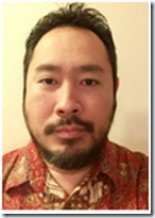Anyone who has experienced a mid-afternoon energy slump or suffered from jetlag has felt the effects of their body’s circadian rhythm. This internal clock helps regulate many of our physiological processes, including sleep, metabolism, and even how the brain functions.
Researchers at Rensselaer Polytechnic Institute anticipate a future in which a combination of smart wearables and algorithms assess each person’s circadian rhythm and provide personalized feedback as to what light, sleep, and work schedule would be ideal for their particular internal clock.
In a foundational step toward that goal, a team of engineers aims to develop reliable mathematical models that can estimate individuals’ circadian rhythms. With the support of a grant from the National Science Foundation (NSF), the team will also develop wearable hardware and software that incorporate various sensors capable of capturing useful biometric information. That data will be used to help build and test the team’s mathematical models.
“Circadian health is very important,” said Dr. Agung Julius, an associate professor of electrical, computer, and systems engineering at Rensselaer who is leading this research effort. “In order to regulate the circadian rhythm effectively, the missing ingredient is the ability to extract data from the subject in a form that is useable.”
As the boundaries between personal time and work time have become increasingly blurred during remote work and school brought about by the COVID-19 pandemic, the need to better understand circadian rhythm has become even more strongly felt. An improved understanding of individual circadian clocks could improve people’s health, energy levels, and alertness.
Dr. Agung Julius joins us today to tell us more about his important research.
Want better health and nutrition? Now you can get personalized supplement recommendations and custom vitamin packs delivered to your door! Go to PersonaNutrition.com/Roizen and take your free assessment and get 50% off your order today. - sponsor
![]()
Bonus
How Your Diet Affects Your Risk for Cancer
